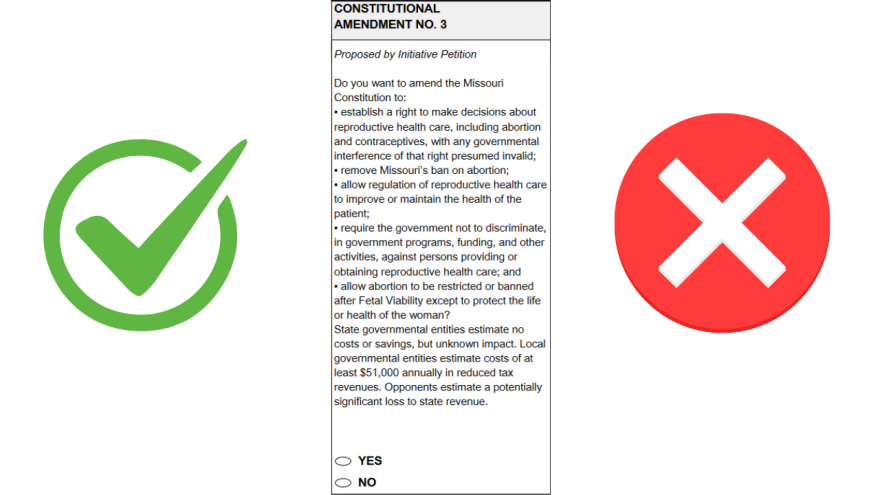Amendment 3 has generated significant attention in Missouri as it addresses the critical issue of reproductive health care rights, including abortion and contraceptives. This amendment is positioned as a response to recent changes in federal abortion laws and seeks to solidify reproductive rights within the Missouri Constitution.
What's in the Amendment?
Amendment 3 contains a few main points to know:
- Establishes a right for people to make decisions about their reproductive health care without interference from the government
- Removes Missouri’s existing ban on abortion, allowing for greater access to abortion services.
- Permits regulation of reproductive health care aimed at improving or maintaining patient health.
- Mandates that the government cannot discriminate against individuals providing or obtaining reproductive health care in its programs and funding.
- Allows for abortion restrictions or bans after fetal viability, but only to protect the life or health of the woman.
The amendment emerges in the context of the U.S. Supreme Court's June 2022 decision to overturn Roe v. Wade, which enabled states to impose their own restrictions on abortion. Currently, abortion is illegal in 13 states, showing the urgent need for legislative clarity in Missouri.
Implications
Yes Vote: A vote for Amendment 3 supports the idea that individuals should have the right to make their own decisions about reproductive health care without government interference. Supporters, often identified as "pro choice," argue that this amendment ensures access to essential healthcare services, including abortion, as well as personal rights over one's own body. They contend that it provides necessary protections in light of recent changes to federal laws and could help reduce the challenges faced by individuals seeking reproductive health care in Missouri.
No Vote: On the other hand, a vote against Amendment 3 maintains the current ban on abortions in Missouri. Those who identify as "pro life" may argue that this approach is necessary to protect the rights of the unborn. They often express concerns about the implications of expanding access to abortion services, including potential impacts on state resources and healthcare funding. They might also emphasize a belief in the sanctity of life from conception onward, arguing that such protections are vital for both moral and ethical reasons.
Financial Considerations
State officials have estimated that there will be no significant costs or savings associated with this amendment. However, local governmental entities project at least $51,000 annually in reduced tax revenues. Opponents of the amendment warn of potential financial impacts, suggesting that the loss of revenue could be significant.
As election day approaches, it is crucial for voters to understand the full implications of a yes or no vote on this amendment. The outcomes of this amendment could change reproductive health care in Missouri, influencing how individuals access certain services and affirm their rights.



